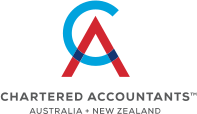5 steps to financial freedom for the modern medical professional
– By Kym Nitschke
It is certainly no secret that medical professionals are faced with unique and individual financial problems & opportunities that others rarely experience . These are our 5 steps to financial freedom for the modern medical professional.
With greater income comes a greater risk, and I have seen it time and time again where medicos have over extended themselves financially. This can lead to having to work longer hours, seeing more patients on a tighter schedule, and moonlighting shifts in order to sustain this cost of living. This leads to burnout, decreased job satisfaction, and in some cases an overall resentment for the profession. This is certainly not ideal for yourself or your patients and not a place that you want to find yourself in. We are much happier in our professional lives when we are comfortable in our financial lives, and with this guide you too can ensure that you protect yourself, your finances, and the lives of those around you by obtaining financial freedom.
Financial freedom means identifying, and eliminating all of the unnecessary financial stresses in our lives, an essential consideration for any professional with their future in mind. This means setting goals for saving, paying down our debts, getting the right insurance and implementing successful investment strategies that will set ourselves and our families up for retirement and beyond. When these areas have been addressed, it leaves you free of financial burdens and allows you to focus on practicing the way that you want to, enduring less hours and shifts, and obtaining a better overall work-life balance.
Tip #1: Spend Sparingly – Don’t get too Big for your Balance
We all know that debt is not the only financial burden faced in life. Property assets, family, and retirement plans are just a few to name. Many medical professionals spend up to 50-60% of their income to satisfy these lifestyle factors, which leaves very little for your goals for retirement. You have worked hard to get into a position where you are able to save for retirement while still maintaining a comfortable standard of living. Careful spending and saving anywhere from 15-20% of your income will help towards retirement at a reasonable age.
Tip #2: Hard Yards – More work in the Beginning means Less in the End
Medical graduates have one distinct advantage over any of their peers. That is that they are often under 30, have less responsibilities and commitments than their colleagues, and they are accustomed to the resident wage and lifestyle. This time of life is the prime position to hit the ground running and clock up the hours, putting in these hard yards in the beginning can really set you up for success when family, relationships and other lifestyle factors become more of a priority. Being a medical graduate and entering the workforce is an exciting time, you have put in the extra years of study all the while watching all of your friends and peers enter the workforce and make money. When it is finally your time to really begin your career, be mindful that you don’t get too excited when the paychecks start rolling in. While receiving that first hard-earned paycheck that you spent years of your life cramming and knuckling down to obtain might be well deserved, it is important not to get overwhelmed and overspend. It is important to set your goals as early as possible in your career, to give yourself a clear direction of where you want to be in the next 15-20 years, you will thank yourself that you did later on.
Tip #3: Write a Plan – The road-map to financial freedom
Sitting down and drawing up a plan for your financial goals is not something that should be underestimated. In fact, it is the key to financial freedom and to your life-long financial success. While it is better tackled sooner rather than later, it is never too late to identify where you want to go in both your professional and financial career. You would be surprised just how hand-in-hand these aspects of your life are. It might seem obvious, however too many medical professionals do not implement a plan for investments, debt reduction and retirement. Having a plan also allows you to automate many of your investments instills good habits for if your investments go through a period of low returns.
Tip #4: The Bigger Picture – Be sure about your Insurance
It is important that you assess what insurance you actually need, and not what insurance that you think that you need, or that has been sold to you as a “necessity”. It is staggering to see how many medical professionals that don’t have adequate insurance i.e health, term life, disability and personal liability insurance. Instead they are purchasing whole-life insurance and insuring low-value household items and mobile phones. Please explain? It comes down to a lack of education on what the real financial risks are in our lives and not looking at the bigger picture. By building a fund for emergencies and minor expenses such as deductibles, appliances and motor vehicles you can cover your bases without paying unnecessary premiums, and financing purchases. Cover yourself with necessary life-insurance for unforeseen circumstances; if only for your family’s sake. Make use of your emergency fund in the unlikely event that your fridge or car need attention.
Tip #5: Educate yourself – Don’t go it alone
In a profession where people are already time-poor, implementing and managing all of these financial strategies can be a bit overwhelming, and a little bit of help can go a long way in fast-tracking your journey to financial freedom. Do your homework, weigh up your options and choose a financial advisor that is right for you. After all, it will leave you more time to focus on what’s important and what you are good at.
What we Offer
At Nitschke Nancarrow Chartered Accountants, we are experts in identifying, and achieving our client’s goals. We have been specialising in medical professionals for over 20 years and continually build lasting relationships with our clients, by providing the highest quality service that only experience can offer. Contact us today for a no obligation discussion.
Read on: Top 10 missed Tax Deductions for Doctors in Australia
Medical Professionals – Trust the service trust for Asset Protection














